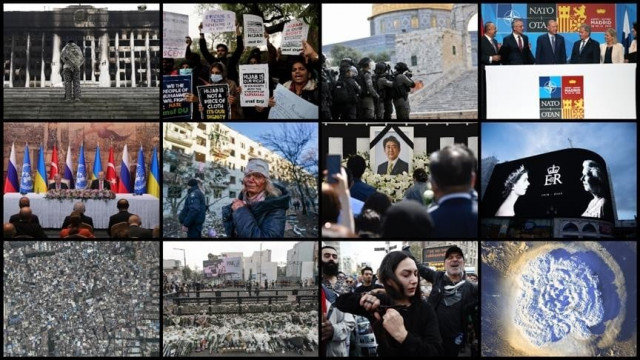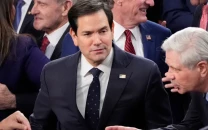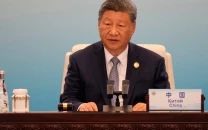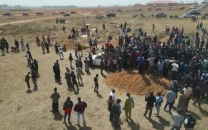2023: Challenging year ahead for world
Year ahead poses challenges to grapple with unprecedented unpredictability compounded by COVID-19, Russia-Ukraine war

Across the world, 2023 poses a challenge to leaders, who must grapple with unpredictability brought by the aftermath of the coronavirus pandemic and in the wake of the Russia-Ukraine war.
While it was expected that a semblance of stability would be restored in 2022 after unprecedented COVID-19 lockdowns, the Russia-Ukraine war has produced more volatility, affecting not just economies and energy markets but global security as well, with the conflict unmatched in magnitude and scale since World War II.
According to the World Economic Forum (WEF), more than 100 million people today are on the run from conflict and disaster and 340 million are projected to require humanitarian assistance in 2023. Along with Somalia, Ethiopia, and Afghanistan, the Forum has identified 20 countries that form the 2023 watchlist facing fragile and crisis-affected communities worldwide.
These countries, though just 13% of the global population and 1.6% of global GDP, represent 81% of the forcibly displaced, 80% of people facing a crisis or catastrophic levels of food insecurity, and 90% of those in need of global humanitarian assistance.
Countries on watchlist
Among the countries on the watchlist, the International Rescue Committee (IRC) humanitarian group believes Ukraine is the only one that has attracted a huge-scale global response, helping it better mitigate the effects of war. But, experts believe that even if the war in Ukraine comes to a pause, hostilities between Russia and the West will continue to pose challenges to multilateral diplomacy.
Afghanistan has dropped down on the list for 2023. But this was not because conditions have improved but because the situation in East Africa has taken precedence in terms of severity.
"Over a year since the power shift, Afghans remain in economic collapse. While a rapid increase in aid prevented famine last winter, the root cause of the crisis persists. Ongoing efforts to engage the government and improve the economy have fallen short. Almost the entire population is now living in poverty and preparing for another long winter," said the IRC.
Further, under the Taliban-led regime, Afghan women and girls remain at risk for violence and exploitation, with many left voiceless as the government restricts education, dress, travel, and political participation for the female population.
Apart from these, other countries of concern include Burkina Faso, the Democratic Republic of Congo (DRC), Ethiopia, Haiti, Somalia, South Sudan, Syria, and Yemen.
Fears are also rising of a possible wave of sovereign defaults across Africa, Asia, and South America in 2023 as many economies are facing the triple effects of weakening economic recovery, rising food and energy prices, and already-high public debt.
The International Monitory Fund (IMF) has warned that regional debt is "approaching levels last seen before the impact of the HIPC initiative." Launched in 1996 by the IMF and the World Bank, the heavily indebted poor countries (HIPC) initiative identified 39 developing nations with high levels of poverty and debt overhang. The initiative was aimed at providing debt relief and low-interest loans to cancel or reduce external debt repayments to sustainable levels so that those countries could repay their debt in a timely fashion.
But now, many middle-income countries are falling into debt traps. Pakistan and Sri Lanka, which did not figure in those 39 nations, are now facing debt strains and will now particularly need market scrutiny as their governments embark on debt restructuring in 2023.
Even as November's G-20 summit in the Indonesian resort of Bali suggested a continued focus on the voluntary redistribution of $100 billion worth of Special Drawing Rights (SDRs) to the countries in greatest need, all eyes will be on the 2023 summit in India to provide a structure so there is less reliance on international financial institutions as prime channels for financial first aid.
Risk of political protests in Africa, Asia
Out of 54 countries in Africa, 17 will hold presidential, prime ministerial, or national legislature elections next year, while 13 that are scheduled for elections in 2024 will be in the thick of preparations and campaigning. This will mark a high risk of political protests, mass demonstrations, and strikes in a range of countries. Upcoming elections in Algeria, Egypt, Ethiopia, the DRC, Libya, Madagascar, Nigeria, South Africa, and Zimbabwe risk becoming flashpoints of disruptive civil unrest in 2023.
In Asia, as expected after the 20th Party Congress, China plans to refocus on economic growth in 2023, after a fresh wave of COVID-19 sent alarm bells ringing across the world.
At the end of 2022, despite earning praise for its Ukraine strategy, US President Joe Biden's team faces an uncanny situation -- arming Ukraine for the bitter winter and then preparing to defend Taiwan to dissuade China from undertaking any military adventure on the island.
Though Washington and Beijing have committed to maintaining communication, including between their two militaries, to prevent any unplanned escalations that could lead to crisis, experts believe tensions in Taiwan and the South China Sea will continue to simmer.
US officials are seeking a trilateral deal with the Netherlands and Japan to enhance broader efforts to curtail the Chinese chip industry's ability to grow. Decisions about these issues may be expected in 2023. It will become a topic of discussion at the EU-US Trade and Technology Council (TTC) export controls working group in 2023.
Writing in the journal Foreign Policy, Zongyuan Zoe Liu, a fellow for international political economy at the Council on Foreign Relations, said climate change and food security were two concrete areas where the US and China should maintain dialogue. She said the decoupling, especially concerning technology, will have short-term effects on China.
"Looking at China's track record, the development of China's own indigenous science and technology was established under isolation. So, if we are talking about this being a return to the Cold War era or even more stringent technological containment trying to suffocate China's domestic, indigenous capacity, it's not unheard of in China. However, the cost is going to be tremendously high for China," she said.
In South Asia, Pakistan and Bangladesh will go to elections to choose new governments. In India, though general elections are scheduled for 2024, the country will go into election mode in 2023 as nine states choose provincial governments to test the popularity of Prime Minister Narendra Modi.
Volatility in gas markets
Further east, Thailand and Cambodia are scheduled to hold elections in 2023, while the candidates to stand in Indonesia's 2024 presidential elections, which will have significant effects on the region and political outlooks, will be nominated in October next year.
Japan will host 2023's G-7 summit in Hiroshima, the hometown of Prime Minister Fumio Kishida, in May. South Korea, Japan, and the US plan to step up cooperation as North Korea remains set on continuing missile and nuclear arms tests until it reaches its goals for technological development.
Volatility and uncertainty in oil and gas markets, along with competition to secure critical mineral supply chains, which will underpin the global energy transition, will likely be the most heated issue intersecting energy markets and geopolitics in 2023 and beyond.
In Europe, ruling parties will fight for re-election in Estonia, Greece, Türkiye, Poland, and Spain, while in the UK, the Conservatives will work to show stability after a year with three different prime ministers, preparing the ground for general elections expected in 2024.
Latin America's biggest test for institutional resilience in 2023 may center on Mexico and Central America. The immediate challenge for the incoming Brazilian administration of President-elect Luiz Inacio Lula da Silva, who takes office in January 2023, will be the handling of the economy. It remains to be seen whether Lula will favor political alliances with Bolivarian countries -- countries with left-wing populist governments such as Venezuela or Nicaragua -- and also normalize relations with China to the chagrin of the US.
The region's most important election will take place in Argentina in October. Even as the country recently won the FIFA World Cup, it has struggled with political dysfunction and financial crises in recent decades.
Shift in approach to terrorism
The recent lukewarm response to Indian Foreign Minister Subrahmanyam Jaishankar's invitation to the UN meeting to discuss terrorism indicates that while major powers assert the importance of eliminating terrorism, they have actually moved on to other issues concerning international peace and security, believes Vivek Katju, former secretary in the Indian foreign office.
He said in 2023, more and more countries will tend to be more sympathetic toward addressing "root causes," reflected in Irish Foreign Minister Simon Coveney's statement.
"The most effective way to tackle terrorism is to prevent it in the first place ... we know that communities affected by conflict, poverty, inequality, poor governance, and human rights violations are more vulnerable to radicalization and recruitment," he said.
Thus, a realization has come to the international community that terrorism cannot be eliminated through force alone. Those issues relating to human rights, justice, and economic and social development have to be taken into account to meet its challenge. This will mean a major shift on the issue by the international community, which will be in the process of evolving new policies to tackle terrorism in 2023.



















COMMENTS
Comments are moderated and generally will be posted if they are on-topic and not abusive.
For more information, please see our Comments FAQ